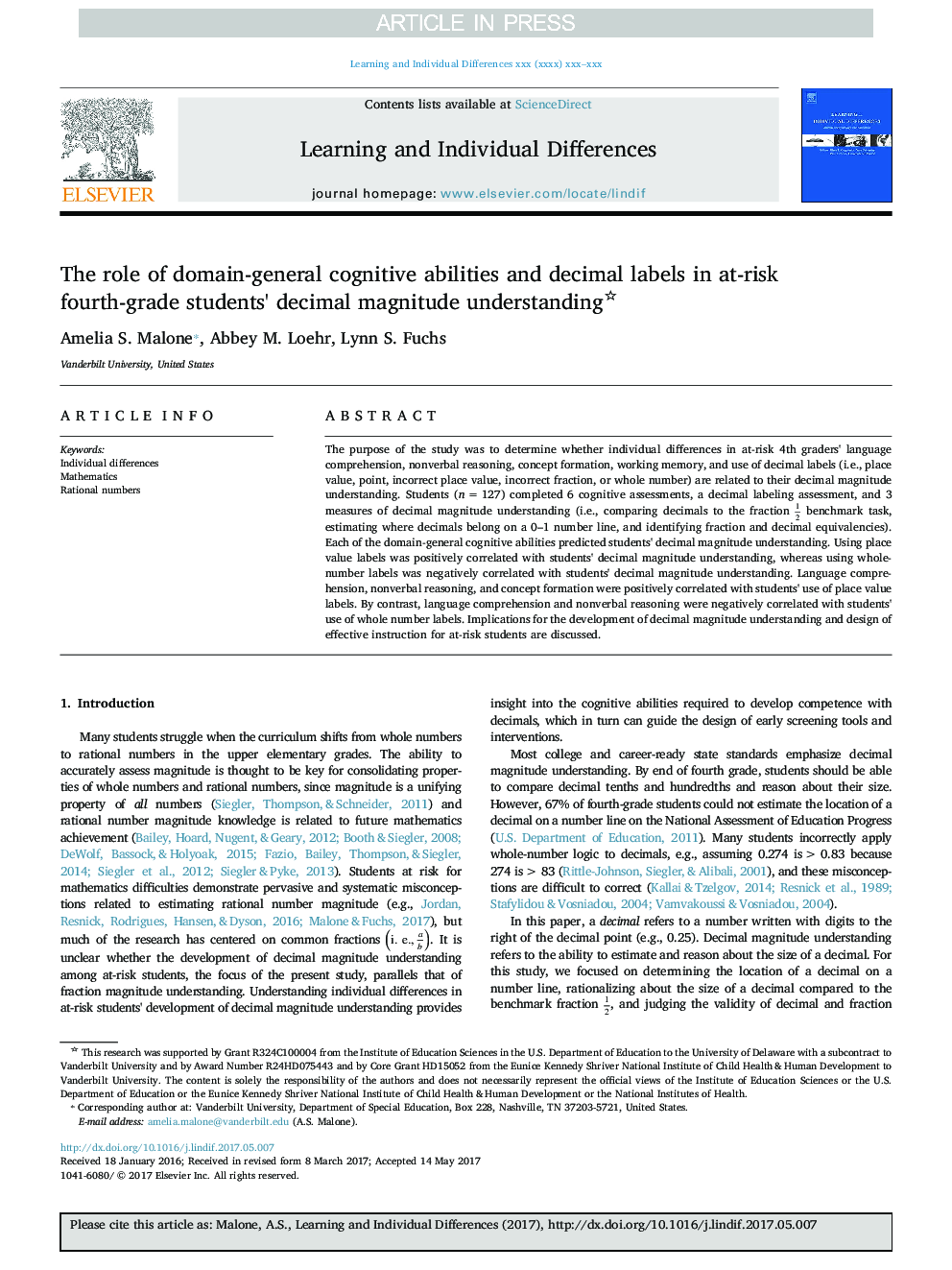| Article ID | Journal | Published Year | Pages | File Type |
|---|---|---|---|---|
| 4939967 | Learning and Individual Differences | 2017 | 7 Pages |
Abstract
The purpose of the study was to determine whether individual differences in at-risk 4th graders' language comprehension, nonverbal reasoning, concept formation, working memory, and use of decimal labels (i.e., place value, point, incorrect place value, incorrect fraction, or whole number) are related to their decimal magnitude understanding. Students (n = 127) completed 6 cognitive assessments, a decimal labeling assessment, and 3 measures of decimal magnitude understanding (i.e., comparing decimals to the fraction 12 benchmark task, estimating where decimals belong on a 0-1 number line, and identifying fraction and decimal equivalencies). Each of the domain-general cognitive abilities predicted students' decimal magnitude understanding. Using place value labels was positively correlated with students' decimal magnitude understanding, whereas using whole-number labels was negatively correlated with students' decimal magnitude understanding. Language comprehension, nonverbal reasoning, and concept formation were positively correlated with students' use of place value labels. By contrast, language comprehension and nonverbal reasoning were negatively correlated with students' use of whole number labels. Implications for the development of decimal magnitude understanding and design of effective instruction for at-risk students are discussed.
Related Topics
Social Sciences and Humanities
Psychology
Developmental and Educational Psychology
Authors
Amelia S. Malone, Abbey M. Loehr, Lynn S. Fuchs,
